Filter by
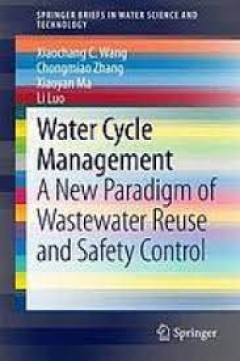
Water Cycle Management A New Paradigm of Wastewater Reuse and Safety Control
This book focuses on environmental engineering, and on wastewater treatment and reuse in particular, which is a vital aspect for countries and regions suffering from water shortages. It introduces a new water cycle management concept for designing water systems that mimic the hydrological cycle, where reclaimed water is produced, stored/regulated, supplied and used in a semi-natural manner so t…
- Edition
- -
- ISBN/ISSN
- 978-3-662-45821-1
- Collation
- VIII, 98
- Series Title
- -
- Call Number
- -
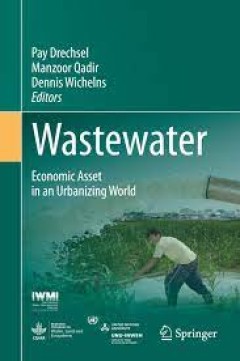
Wastewater Economic Asset in an Urbanizing World
The books provides a timely analysis in support of a paradigm shift in the field of wastewater management, from ‘treatment for disposal’ to ‘treatment for reuse’ by offering a variety of value propositions for water, nutrient and energy recovery which can support cost savings, cost recovery, and profits, in a sector that traditionally relies on public funding. The book provides new insi…
- Edition
- -
- ISBN/ISSN
- 978-94-017-9545-6
- Collation
- XII, 282
- Series Title
- -
- Call Number
- -
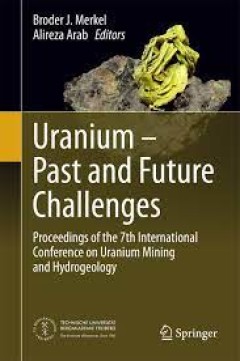
Uranium - Past and Future Challenges Proceedings of the 7th International Co…
This book is the collection of papers from the latest International Uranium Mining and Hydrogeology Conference (UMH VII) held in September 2014, in Freiberg, Germany. It is divided to five sessions: Uranium Mining, Uranium and Phosphates, Clean-up technologies for water and soil. Uranium and daughter nuclides and basic research and modeling. Each session covers a wide range of related topic and…
- Edition
- -
- ISBN/ISSN
- 978-3-319-11059-2
- Collation
- 272 b/w illustrations, 88 illustrations in colour
- Series Title
- -
- Call Number
- -

Aerosol-Cloud Interactions from Urban, Regional, to Global Scales
The studies in this dissertation aim at advancing our scientific understandings about physical processes involved in the aerosol-cloud-precipitation interaction and quantitatively assessing the impacts of aerosols on the cloud systems with diverse scales over the globe on the basis of the observational data analysis and various modeling studies. As recognized in the Fifth Assessment Report by t…
- Edition
- Ed. 1
- ISBN/ISSN
- 978-3-662-47175-3
- Collation
- XXI, 86
- Series Title
- Springer Theses
- Call Number
- 551.6 WAN a
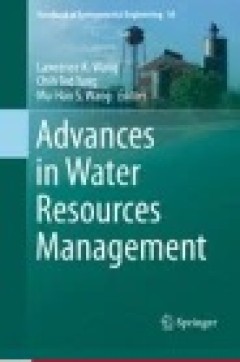
Advances in Water Resources Management
This volume provides in-depth coverage of such topics as multi-reservoir system operation theory and practice, management of aquifer systems connected to streams using semi-analytical models, one-dimensional model of water quality and aquatic ecosystem-ecotoxicology in river systems, environmental and health impacts of hydraulic fracturing and shale gas, bioaugmentation for water resources prot…
- Edition
- Ed. 1
- ISBN/ISSN
- 978-3-319-22924-9
- Collation
- XII, 569
- Series Title
- Handbook of Environmental Engineering
- Call Number
- 628.5 ADV a
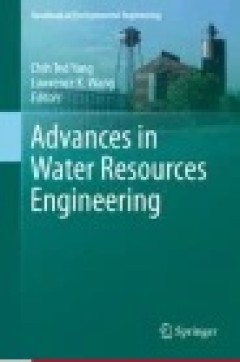
Advances in Water Resources Engineering
This book, Advances in Water Resources Engineering, Volume 14, covers the topics on watershed sediment dynamics and modeling, integrated simulation of interactive surface water and groundwater systems, river channel stabilization with submerged vanes, non-equilibrium sediment transport, reservoir sedimentation, and fluvial processes, minimum energy dissipation rate theory and applications, hydr…
- Edition
- Ed. 1
- ISBN/ISSN
- 978-3-319-11023-3
- Collation
- XXVIII, 556
- Series Title
- Handbook of Environmental Engineering
- Call Number
- 628.5 ADV a
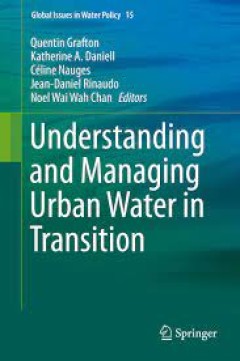
Understanding and Managing Urban Water in Transition
This book examines changes and transitions in the way water is managed in urban environments. This book originated from a joint French-Australian initiative on water and land management held in Montpellier, France. The book delivers practical insights into urban water management. It links scientific insights of researchers with the practical experiences of urban water practitioners to understan…
- Edition
- -
- ISBN/ISSN
- 978-94-017-9801-3
- Collation
- 37 b/w illustrations, 54 illustrations in colour
- Series Title
- -
- Call Number
- -
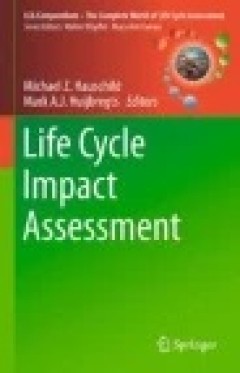
Life Cycle Impact Assessment
This book offers a detailed presentation of the principles and practice of life cycle impact assessment. As a volume of the LCA compendium, the book is structured according to the LCIA framework developed by the International Organisation for Standardisation (ISO)passing through the phases of definition or selection of impact categories, category indicators and characterisation models (Classifi…
- Edition
- -
- ISBN/ISSN
- 978-94-017-9744-3
- Collation
- -
- Series Title
- -
- Call Number
- -
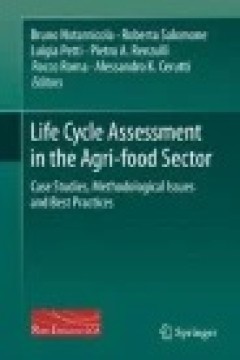
Life Cycle Assessment in the Agri-food Sector: Case Studies, Methodological I…
The book presents an overview of the International practices and state-of-the-art of LCA studies in the agri-food sector, both in terms of adopted methodologies and application to particular products; the final purpose is to characterise and put order within the methodological issues connected to some important agri-food products (wine, olive oil, cereals and derived products, meat and fruit) a…
- Edition
- -
- ISBN/ISSN
- 978-3-319-11940-3
- Collation
- -
- Series Title
- -
- Call Number
- -
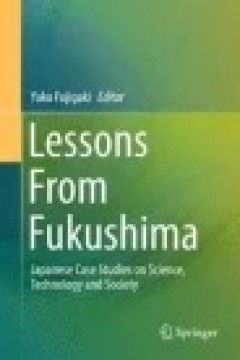
Lessons From Fukushima: Japanese Case Studies on Science, Technology and Society
This book is about the consequences of the Fukushima disaster in light of their technological, societal, political, cultural and environmental origins. The magnitude of the nuclear accident is investigated in this book in the contexts of politics, economy, and society. The authors scrutinize the relationships between science, technology and society leading to this accident. Further, the authors…
- Edition
- -
- ISBN/ISSN
- 978-3-319-15353-7
- Collation
- -
- Series Title
- -
- Call Number
- -
 Computer Science, Information & General Works
Computer Science, Information & General Works  Philosophy & Psychology
Philosophy & Psychology  Religion
Religion  Social Sciences
Social Sciences  Language
Language  Pure Science
Pure Science  Applied Sciences
Applied Sciences  Art & Recreation
Art & Recreation  Literature
Literature  History & Geography
History & Geography